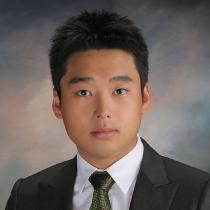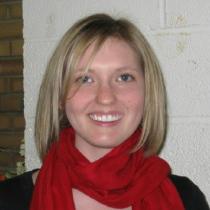As research institutions continue to establish themselves as leaders in tech transfer, the University of Minnesota is giving graduate and professional students a way to gain industry experience and help get university discoveries out the door.
Through the U’s Office for Technology Commercialization, interns can gain a better understanding of how technology transitions from research project to commercial product and use that knowledge in their future careers.
“This is an opportunity for students to broaden their education and experience and have something on their resume that sets them apart,” said Leza Besemann, a technology strategy manager with OTC.
Besemann started the internship program in November 2011, modeling it after a similar program at Columbia University. It was becoming a challenge for OTC staff to collect and analyze information for the more than 300 technologies coming through the office every year and bringing in interns would provide the needed support. Columbia’s program gave Besemann an idea what to aim for at OTC and provided materials and advice to help her begin.
Though OTC’s program began with only three doctoral students, there are now 15 interns with experience in engineering, the life sciences and many other fields. Their duties include helping assess the commercial potential of new technology and conducting patent searches.
Check out what several of OTC’s current interns have to say about the program:
Sun Yang
Hometown: Seoul, South Korea.
Undergraduate education: Bachelor’s degree in electronic engineering at Yonsei University, Seoul.

Where are you in your academic career now?
I am a second-year MBA student at Carlson School of Management focusing on marketing. I have been working as a part-time intern for OTC since February 2013, and I interned full-time during the summer. I worked for Oracle Korea as marketing manager for four years before I joined the Carlson School.
What sparked your interest in the OTC internship program?
My long-term goal is to become a technology marketing manager at an office of technology transfer in South Korea. I am interested in technology commercialization, especially the marketing aspect. However, in my country, technology transfer is not well-developed and it was difficult to get experience in the business process. I figured working for OTC would be the best chance to learn to assess the value of technology and to develop marketing strategies for intellectual property for my future career.
What is your role as an intern at OTC?
My job title is senior student marketing intern. My primary responsibility is to develop marketing strategies for newly invented technology by researching the market size of industry related to the technology and finding potential licensees. In other words, I address how to generate revenue from the U of M’s intellectual properties while collaborating with OTC staff.
What’s one thing you didn’t know about the business of tech development?
My previous work experience at Oracle allowed me to conduct marketing projects for existing products in the information technology industry, but I couldn’t participate in the initial technology assessment. Working at OTC, I have learned how to assess the value of technology based on patent evaluation and market potential decision tools. Furthermore, since OTC is covering a wide range of technologies, I have conducted diverse projects ranging from agriculture to the health care industry which I had never experienced. Now, I have in-depth knowledge about many industries, such as health care, agriculture and medical devices.
How will this experience help your career going forward?
My short-term goal is to become a product manager at a technology company. My previous work experience was limited to the IT industry, but now I can apply to a full-time product manager role at a medical device, pharmaceutical or engineering company using my OTC internship experience. In addition, I have worked and networked with marketing and strategy managers, and I believe this will allow me to get advice and support for my long-term career goal.
Amanda Maxwell
Hometown: Minneapolis, Minn.
Undergraduate education: Chemistry major at Luther College.

Where are you in your academic career now?
I am a PhD student in chemistry. I obtained my master’s degree in chemistry in 2011 from the U.
What sparked your interest in the OTC internship program?
I spent two years working in the medical device industry as a research technician where I witnessed the impact of patent law and the marketing of novel technologies on the success of the company and the careers of its scientists. As a graduate student, much of my time is devoted to hands-on research at a lab bench and the rest to teaching, so an internship with OTC provides breadth to my education by allowing me to experience the business and legal sides of research and innovation. This training is uncommon for scientists. It will make me a valuable asset to any corporate research department and better prepare me for a successful career.
What is your role as an intern at OTC?
As an intern, I scour existing publications and patent literature relevant to a particular technology to assist in evaluating its novelty. I also suggest and analyze potential markets for technologies, primarily in the areas of pharmaceuticals, biochemistry and materials. My assessments are then used by the technology strategy manager to determine whether a technology will be patented, licensed or used for a start-up company.
What’s one thing you didn’t know about the business of tech development?
I knew very little about markets before working with OTC. Now, within a matter of hours, I can give you a market outline including the size and value of a market, the market drivers and challenges, the revenues from current products and the major competitors in the field. This information is crucial in determining the potential profitability of a technology and may affect the decision of whether to pursue or abandon a research project.
How will this experience help your career going forward?
I intend to pursue a career as a research scientist in the medical device industry. The analysis tools and written communication skills that I have practiced will help set me apart in the competitive job market. I will be more capable of selecting projects that are relevant to industry and the market and better at communicating my research and its importance to a general audience as a result of this experience.
Nicolaas Kramer
Hometown: Eindhoven, the Netherlands.
Undergraduate education: Bachelor’s and master’s degrees in applied physics from Eindhoven University of Technology in the Netherlands. Kramer also attended Massachusetts Institute of Technology and the Colorado School of Mines.

Where are you in your academic career now?
I am currently a Ph.D. candidate in mechanical engineering. My expected graduation date is 2015.
What sparked your interest in the OTC internship program?
Besides science and engineering, I am also very interested in business. The work at OTC interested me as it combines the two. I believe technology commercialization is very important and deserves more attention at the U of M. It offers the opportunity to take new technologies out of the lab and actually use them in the real world. After talking to one of the associates of the OTC Venture Center, I decided to apply.
What is your role as an intern at OTC?
As an intern I am responsible for evaluating new technologies and innovations from U of M researchers. The main goal of my work is to enhance the understanding of the commercial potential of these new technologies and to identify areas that require further improvements to make the technology ready for commercialization. These “early commercialization assessments” also consist of an analysis of the market (size, drivers, outlook), an overview of the new technology and its competitors, and a list of potential licensees. This assessment is then used to determine the potential of the technology and the best way to commercialize it (startup, license, etc).
What’s one thing you didn’t know about the business of tech development?
The researchers that work with OTC have a lot of knowledge of the technologies they are working on; however, commercializing these technologies requires a completely different skill set. OTC helps researchers make the commercialization a success. Graduate students that work on the technologies can also remain involved during the process. For example, in some cases the students are even part of a startup that forms. Also, many new challenges arise when technologies transition from the lab to the commercial market. Aspects such as cost and reliability are typically not well known during the research stage but are very important when the technology is commercialized.
How will this experience help your career going forward?
What I enjoy most about the internship program is the opportunity to learn more about new technologies being developed at the U of M and at the same time be involved in the business side of technology commercialization. While I enjoy science and engineering, I am hoping to steer my personal career more towards business after graduation. Technology commercialization is an area I am interested in, and I am also looking into management consulting. The internship experience will certainly be beneficial for these career options as it helps me expand my business knowledge and gain experience with technology.
Keli Holzapfel
Hometown: Seattle, Wash.
Undergraduate education: Bachelor’s degree in biochemistry from the University of Washington.

Where are you in your academic career now?
I am currently in my sixth year as a Joint Degree Program student pursuing a JD/Ph.D. in molecular, cellular, developmental biology and genetics. I have completed the first two years of law school and am in the fifth year of my Ph.D. studies in the laboratory of Dr. Kristin Hogquist. My thesis research has two focuses: the first is on natural killer T cell activation during various infections; and the second on deriving natural killer T cells from hematopoietic stem cells for use as a potential cancer therapy.
What sparked your interest in the OTC internship program?
As a scientist, I am very interested in the discovery of cutting-edge new technologies and their potential applications. As a future patent attorney, I am very interested in the patentability and commercialization potential of new technologies. The OTC internship was a perfect opportunity to meld these interests, and it has been exciting to learn about all the amazing technologies discovered here at the U of M.
What is your role as an intern at OTC?
My position aids the technology strategy managers in their examination of new technologies. This entails researching a new technology to find if there are similar technologies already in the marketplace and examining its commercialization potential. Additionally, I brainstorm other possible applications of the technology using my own scientific knowledge and through my research. Then I put all this information into a report which aids the technology strategy managers in their evaluations of how to proceed with the business aspects of the technology.
What’s one thing you didn’t know about the business of tech development?
It has been very interesting to learn about all the different aspects of evaluation that a technology goes through and how this influences what path the university will pursue with it. Technology development is not just about creating something novel, but also about creating something useful and being careful about how the technology is brought to market to ensure its success.
How will this experience help your career going forward?
I hope to become a patent attorney and in the future will most likely be working with universities. This internship experience has given me valuable insight not only into how technologies are evaluated but also the unique considerations of a university during their evaluation. Additionally, it has stretched my thinking into fields I was less familiar with which has expanded my general scientific knowledge.
Learn more about OTC internships
Originally published on Business @ the U of M.